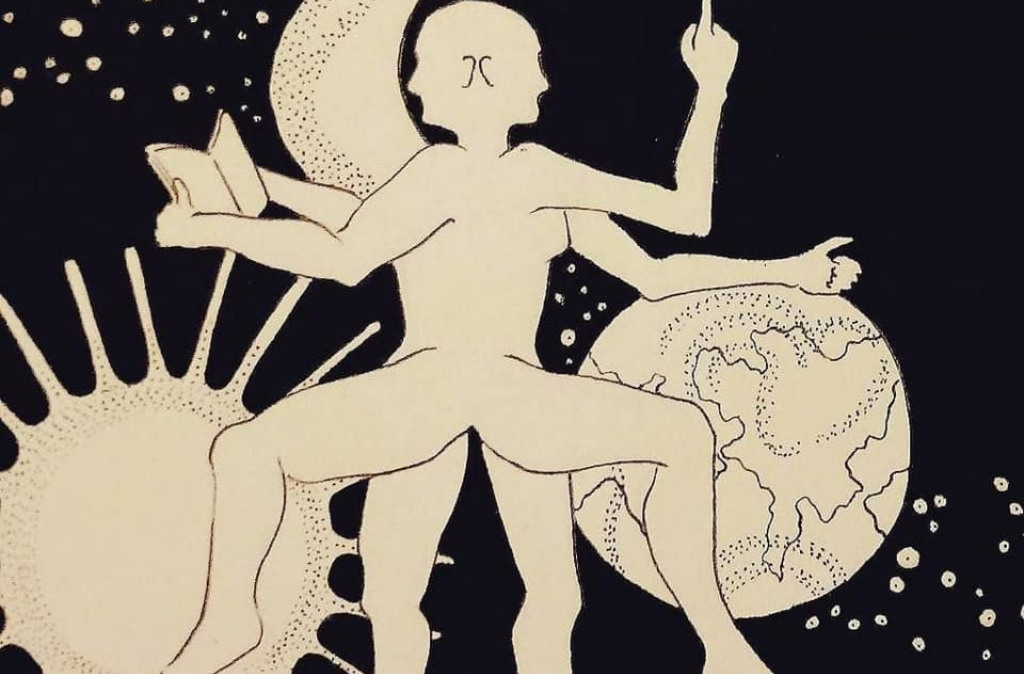Philosophical musings on the origin of love and longing on a sleepless full moon night.
“So ancient is the desire of one another which is implanted in us, reuniting our original nature, seeking to make one of two, and to heal the state of man.” – Aristophanes (Plato’s Symposium)
Human nature was once originally one. And we where whole. We defied the Gods, and as punishment, we were split in half. Now – it’s our human nature – we spend our days looking to be rejoined with our loved ones, literally, our other half.
The desire and the pursuit of the whole is called LOVE.
The story goes that human beings were originally perfectly happy creatures with four arms and legs, eight in total, with one head and two faces.
These double-sided people came in three types:
☀️ There were man-man combinations, which were born of the sun.
☀️ There were woman-woman combinations, born from the earth.
☀️ Then there were man-woman combinations; these were born from the moon, obviously.
They defied the Gods, and as punishment Zeus split them in two, creating people as we see them today.
This splitting up, however, created a longing in mankind. All people wandered the earth, hoping to be joined together again with their counterparts.
Interestingly, Aristophanes’ story also gives an account for the origin of homo and heterosexuality. Depending on what combination you were before you were split up (man-man, woman-woman, or man-woman) you will instinctively be drawn to whichever sex, in a sense, completes you.
Aristophanes, in a fanciful way, gives his account for the origin of love and even takes time to explain why we love whom we love.
Angela is a Multilingual Communications Professional | Writer & Speaker | Managing Director | Entrepreneur
“Inspiring and empowering people is what I love doing, for I firmly believe everyone deserves to feel great at any time. Communication is my passion.” You can find her on Twitter @angelacarlucci
In the course of a lively drinking party, a group of Athenian intellectuals exchange views on Eros, or desire. From their conversation emerges a series of subtle reflections on gender roles, sex in society, and the sublimation of basic human instincts. The discussion culminates in a radical challenge to conventional views by Plato’s mentor, Socrates, who advocates transcendence through spiritual love. The Symposium is a deft interweaving of different viewpoints and ideas about the nature of love – as a response to beauty, a cosmic force, a motive for social action, and as a means of ethical education.


